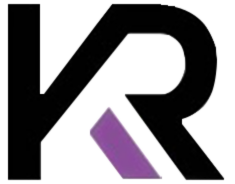
With the constant changes in the rules and regulations of medical codes and billing, every healthcare practice institution must stay on top and be well-informed. In conjunction with the continuous need to keep up with the revenue cycle, medical billing can be one of the most challenging tasks. If you are struggling to keep up with maximizing your revenue and managing your medical claims, here are five medical billing tips you should incorporate in your operations.
Establish Clear Collection Procedure
While patients should be responsible for staying on top of their debt repayment, healthcare practices and clinics should also cooperate to remind patients about their obligations, especially when regulations alter. Therefore, it is important to establish a clear collection procedure with your patients and determine the most optimal and accessible funding methods.
Your staff should communicate what their payment entails and inform them if installment plans are feasible. More importantly, ensure that their personal information and details such as residential and billing addresses, contact numbers, occupations are constantly updated. Additionally, you should also emphasize the importance of verifying the patient’s insurance eligibility for coverage to your staff.
Train Your Staff During Onboarding
Before joining the team, your staff should undergo advanced training in medical billing operations as part of their orientation and onboarding. In addition to establishing a structured and thorough billing system, you should also ensure that every member of your customer service team should be knowledgeable in the medical billing process. In short, you should never put all your eggs in one basket and think that only the staff responsible for filing the claims should receive the training. Having all your staff understand the procedures of medical billing will enhance internal team communication and promote a smoother workflow.
Submit Claims Timely
Today, healthcare practices face the challenge of filing medical claims in an accurate, comprehensive yet timely manner. However, your staff should have the custom of filing medical claims of the day by the end of your operating hours to create allowance and time to resolve any hiccups and issues. It is important to know that a claim submission is not the end of the process and should be constantly updated until the patients fully settle it. Additionally, you should always check if you are delivering the claim to the correct third-party payer responsible for the different service and equipment codes.
Resolve Rejected Claims Immediately
Claim denials, rejections, and cancellations do happen. However, it is incredibly vital that you deal with them as soon as possible, as this could result in delays in insurance pay-outs, which could inherently affect your healthcare practice’s revenue stream. Additionally, you can expedite this process by communicating with the third-party payer, as they will be able to provide you with their assistance in resolving the initial claim and expedite the medical billing and claiming process. This will be integral in reducing the time needed to resubmit the claim.
Stay Updated on the Latest Medical Billing Regulations
One underrated yet critical piece of advice anyone could provide you is staying updated on the latest medical billing regulations. With the field of medicine and healthcare expanding drastically in a short period, the medical billing codes, regulations, and standards are constantly evolving. Therefore, leaders in healthcare practice must catch up with the latest regulations, as this could necessitate the review of billing procedures and staff training.
Why Partner with KR Billing Solutions?
At KR Billing Solutions, we pride ourselves in our commitment to providing our clients with the most innovative solutions to increase the efficiency of their medical billing processes. We understand that constantly staying up to date on the latest medical codes and regulations can be overwhelming for any institution that wishes to provide personalized service to its patients and clients. From claim scrubbing and submission to AR follow-up to denial management and appeals, we are here to guide and help you every step of the way.

With the constant changes in the rules and regulations of medical codes and billing, every healthcare practice institution must stay on top and be well-informed. In conjunction with the continuous need to keep up with the revenue cycle, medical billing can be one of the most challenging tasks. If you are struggling to keep up with maximizing your revenue and managing your medical claims, here are five medical billing tips you should incorporate in your operations.
Establish Clear Collection Procedure
While patients should be responsible for staying on top of their debt repayment, healthcare practices and clinics should also cooperate to remind patients about their obligations, especially when regulations alter. Therefore, it is important to establish a clear collection procedure with your patients and determine the most optimal and accessible funding methods.
Your staff should communicate what their payment entails and inform them if installment plans are feasible. More importantly, ensure that their personal information and details such as residential and billing addresses, contact numbers, occupations are constantly updated. Additionally, you should also emphasize the importance of verifying the patient’s insurance eligibility for coverage to your staff.
Train Your Staff During Onboarding
Before joining the team, your staff should undergo advanced training in medical billing operations as part of their orientation and onboarding. In addition to establishing a structured and thorough billing system, you should also ensure that every member of your customer service team should be knowledgeable in the medical billing process. In short, you should never put all your eggs in one basket and think that only the staff responsible for filing the claims should receive the training. Having all your staff understand the procedures of medical billing will enhance internal team communication and promote a smoother workflow.
Submit Claims Timely
Today, healthcare practices face the challenge of filing medical claims in an accurate, comprehensive yet timely manner. However, your staff should have the custom of filing medical claims of the day by the end of your operating hours to create allowance and time to resolve any hiccups and issues. It is important to know that a claim submission is not the end of the process and should be constantly updated until the patients fully settle it. Additionally, you should always check if you are delivering the claim to the correct third-party payer responsible for the different service and equipment codes.
Resolve Rejected Claims Immediately
Claim denials, rejections, and cancellations do happen. However, it is incredibly vital that you deal with them as soon as possible, as this could result in delays in insurance pay-outs, which could inherently affect your healthcare practice’s revenue stream. Additionally, you can expedite this process by communicating with the third-party payer, as they will be able to provide you with their assistance in resolving the initial claim and expedite the medical billing and claiming process. This will be integral in reducing the time needed to resubmit the claim.
Stay Updated on the Latest Medical Billing Regulations
One underrated yet critical piece of advice anyone could provide you is staying updated on the latest medical billing regulations. With the field of medicine and healthcare expanding drastically in a short period, the medical billing codes, regulations, and standards are constantly evolving. Therefore, leaders in healthcare practice must catch up with the latest regulations, as this could necessitate the review of billing procedures and staff training.
Why Partner with KR Billing Solutions?
At KR Billing Solutions, we pride ourselves in our commitment to providing our clients with the most innovative solutions to increase the efficiency of their medical billing processes. We understand that constantly staying up to date on the latest medical codes and regulations can be overwhelming for any institution that wishes to provide personalized service to its patients and clients. From claim scrubbing and submission to AR follow-up to denial management and appeals, we are here to guide and help you every step of the way.




Recent Comments